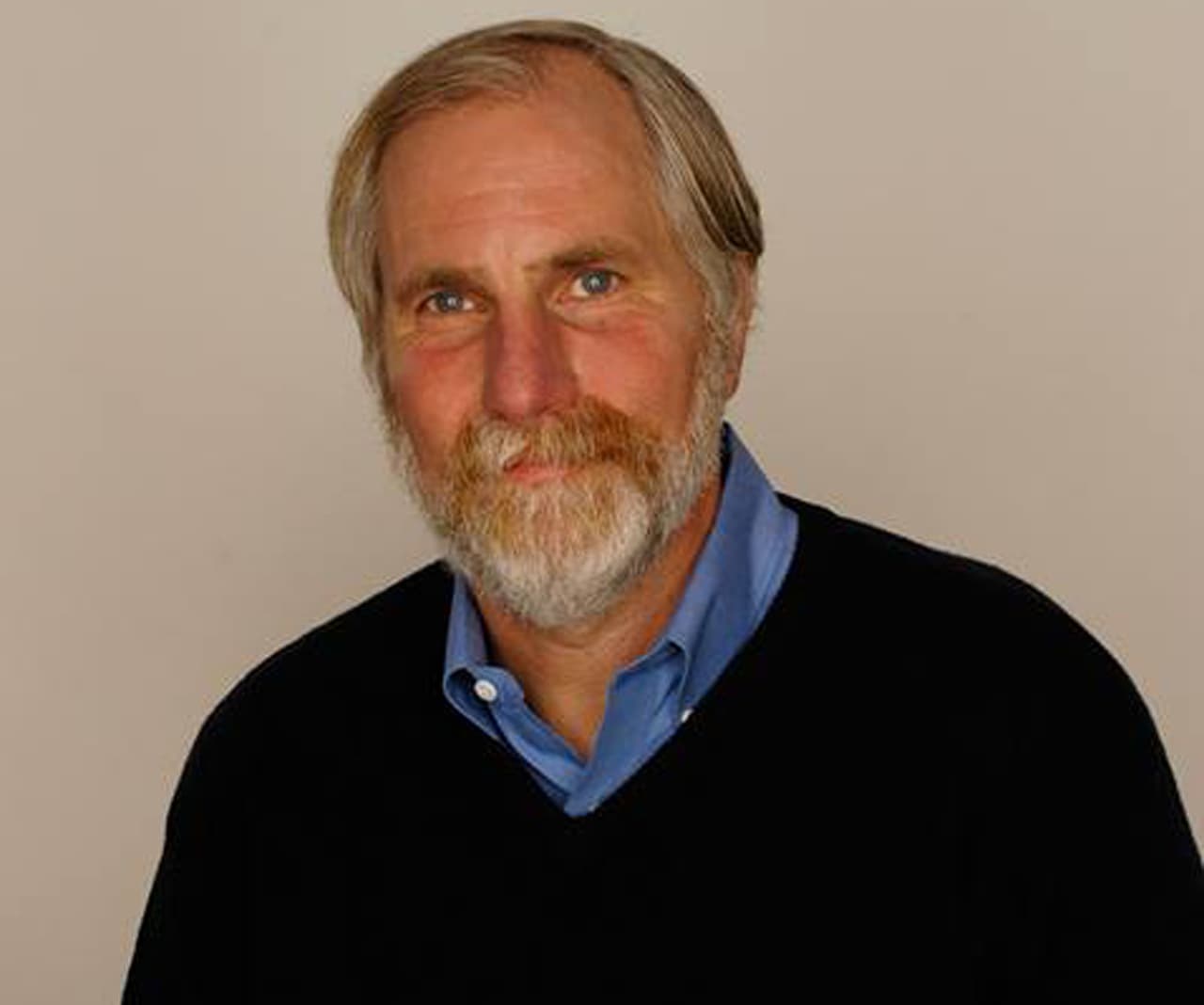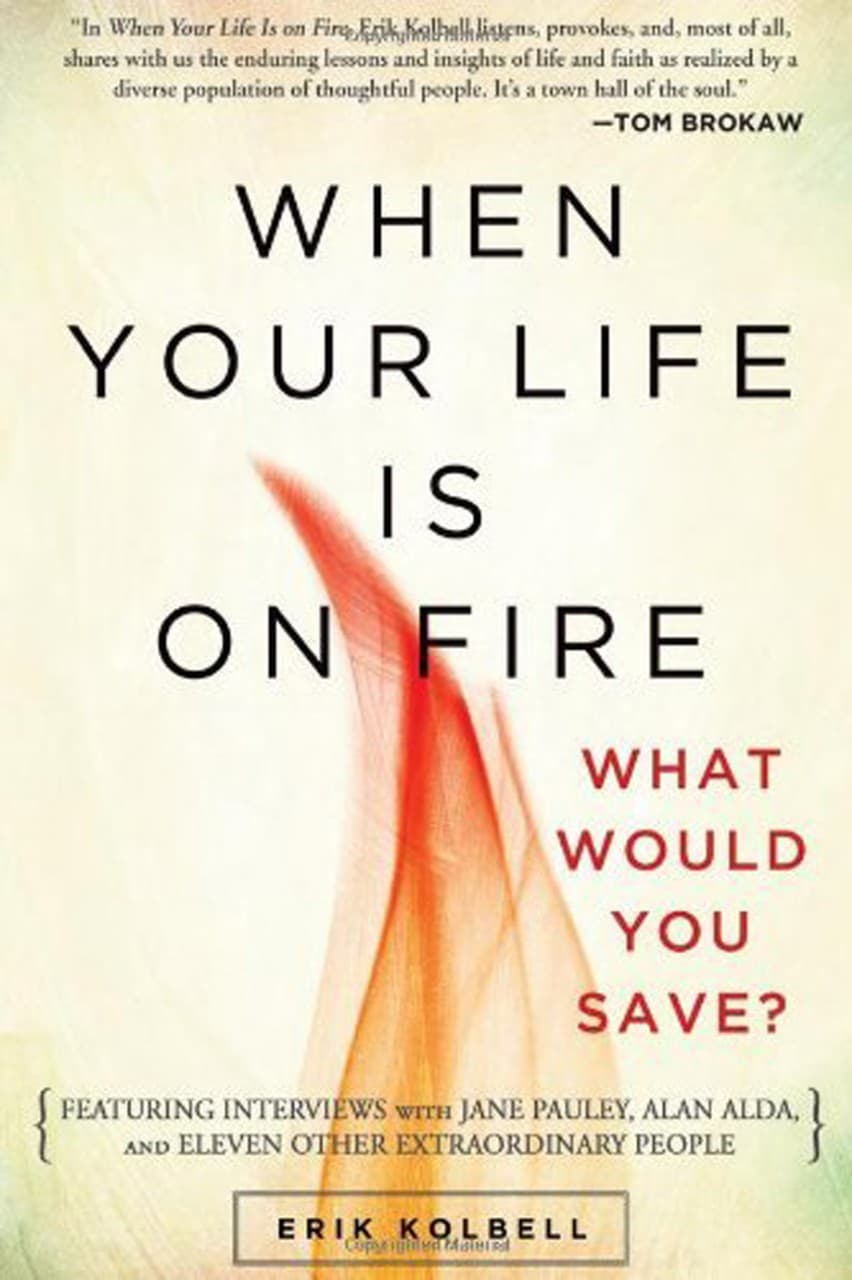Advertisement
When Your Life Is On Fire, What Would You Save?
Many of us have emergency plans for a calamities like an earthquake or a fire, but author Erik Kolbell set out to explore how prepared we are for a dark night of the soul.

Kolbell started with a variation of the question, "what would you save if your house were on fire?"
In Kolbell's experiment, your house is burning, but all your loved ones, including pets, are already safe. You can save only one thing from your house, but the catch is that your house contains not only every single thing you own, it also contains everything you are, including your beliefs and principles, your likes and your dislikes, your temperament and passions.
Kolbell put the question to 13 people, from the famous, like Alan Alda and Jane Pauley, to names not in the media, like a New York City firefighter who responded to the 9/11 attack at the World Trade Center, and a veteran who was severely injured in Iraq.
Kolbell explains to Here & Now's Robin Young what lessons there are from his experiment for all of us, especially during Easter and Passover. An excerpt of his book, "When Your Life Is on Fire: Thirteen Extraordinary People Answer One Simple Question" appears below.
Book Excerpt: 'When Your Life Is On Fire'
By Erik Kolbell
Burning Passions: An Introduction

Though we might love God we cannot speak of Him (or Her or, whatever). What I mean by this is that we can speak only in approximations about who or what God is because the infinite cannot be fully captured in words any more than the stars of the night can be held in the palm of your hand.
To say that God is love (or judgment, or wisdom or power…) is to say that we experience what we call love (or judgment, or wisdom or power…) from what we call God (or Allah, or Vishnu, or Elohim, or Arhant, or, oh, you get the idea.) What this means is that we do not so much speak of God as we do of who God is in our lives. Thus, the metaphysician’s God is first cause just as the priest’s God is the source of all creation. The God of Freud is the neurotic’s illusion of a divine father, just as the God of the dutiful six year old Sunday schooler is, well, a divine father. The iconoclastic theologian Paul Tillich spoke of God as “the object of [his] ultimate concern,” which was a variation on Martin Luther’s observation that “Whatever then thy heart clings to…and relies upon…that is properly thy God.” And in both instances the emphasis is not on God’s nature but on what it elicits in us. Others over the years have spoken of God in a similar vein as the object of our adoration and worship, or that which we value above all else.
Advertisement
We do not all believe in God, let alone the same God. But we do all have the capacity to identify that which our heart clings to, that which we adore and value above all else; and while for some of us this may not be synonymous with a description of God per se it is indicative of how that which we consider “sacred” (if even in a secular sense) comes into our lives.
This book is comprised of interviews with a wide range of people from various walks of life with whom I explored what it is that they hold in greatest esteem and why. By asking them this I am asking them to define what is for them, if not their God, or even their god, that which is the object of their ultimate concern. With this in mind I chose a group of interviewees whose creativity, thoughtfulness, beliefs, courage or simply joie de vivre made for compelling narrative.
My method of inquiry was a variation on an old query: “Imagine that your house is on fire,” the query goes, “but in this instance your house represents not only all of your material possessions, it is your entire life. It is everything you own but it is also everything you believe in. Every memory you hold, your values, your money, your credentials, your legacy, your dreams are all ablaze in that house. All of your family, friends and pets are safe, but everything else is imperiled. If you know only that you can rescue one thing from that fire, what would it be?” The idea was not to have the subjects muse detachedly on the subject matter; rather, it was to have them tell their story so that the story bears personal witness to that which they hold dear or sacred.
In addition, I have concluded each chapter with a brief meditation of my own on how the holy is uniquely represented in the subject’s life, yet at the same time how any one of us might find a point of identification with the subject’s story.
I hope this book will speak to the reader on three important levels. First, I hope her eyes will be opened to the broad array of ways in which we human beings find ultimate value. Second, I hope it stirs her to think about the question as it pertains to her own life. Finally, I can’t help but think that the reader will be deeply moved by some of the extraordinary stories these people have to tell. Put another way, I believe you will find Burning Passions to be informative, evocative, and inspirational.
Excerpted from the book WHEN YOUR LIFE IS ON FIRE by Erik Kolbell. Copyright © 2014 by Erik Kolbell. Reprinted with permission of Westminster John Knox Press.
Guest
- Rev. Erik Kolbell, pyschotherapist and former minister of social justice at Riverside Church in New York. His new book is "When Your Life Is On Fire."
This segment aired on April 18, 2014.